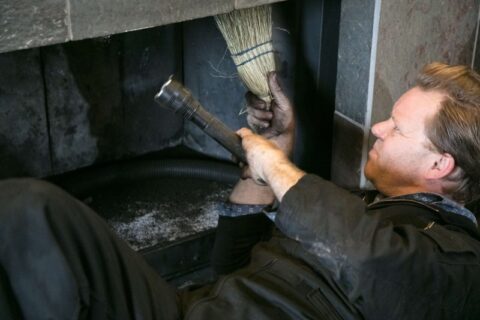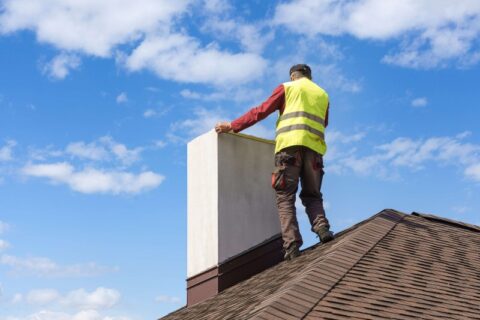6 Ways Water Leaks Through the Chimney
Our Chimney Repair Service Can Fix Leaks
When most people think of leaking water, they think of plumbing issues. But there is another way that water can get into your home and wreak havoc: your chimney. Make no mistake about it; water infiltration can cause thousands of dollars worth of property damage. Leaking water from your chimney can initiate mold and mildew growth, rot out your drywall, damage wood, and compromise your roofing system. Even if you don’t use your fireplace, you need to have your chimney inspected to make sure that it isn’t letting in water. In any case, it’s always a good idea to have your unused chimney sealed. We offer a variety of chimney services in Glen Burnie, MD here at ChimneyTek, so you can talk to us about your leaking chimney. All you have to do is give us a call. In the meantime, let’s look at six specific ways in which water can leak through your chimney.
6 Ways Water Leaks Through the Chimney
Your chimney is not impervious to cracks and leaks – masonry work is not impenetrable. Here are six of the most common ways that water finds its way into your home through the chimney.
- Mortar Damage – Cracks and missing portions in the mortar between the bricks in your chimney are very easy access points for water.
- Flashing Damage – Flashing is what creates a watertight seal between your roof and anything that protrudes from it, like a vent, skylight, or a chimney. When the flashing on your chimney is old or damaged, it can easily let water into the roofing system.
- The Chimney Cap – The chimney cap is what protects the opening at the top of your chimney. This is your chimney’s first line of defense against rain, debris, and animals. If the chimney cap is missing, damaged, or simply misaligned, water will enter the flue.
- Broken Chimney Liner – When the chimney liner has a crack or is otherwise compromised, condensation within the flue can build up.
- Brickwork – Bricks are naturally porous and need direct sunlight to dry out. When it rains, they can absorb a lot of water, which is usually fine if they get plenty of direct sunlight. If your chimney is constantly shaded, the bricks can absorb enough water to begin leaking into your home.
- Damaged Chimney Crowns – The job of the chimney crown is to channel water away from the chimney termination. It’s made of concrete, so over time it can crack, causing water leaks.
Avoid Leaks
The best way to ensure that your chimney is not an entryway for leaks is to have it professionally inspected. At ChimneyTek, our team is Chimney Safety Institute of America certified, which means we are qualified to conduct all levels of chimney inspection and chimney repair. Make sure your home is completely protected by giving us a call today!


